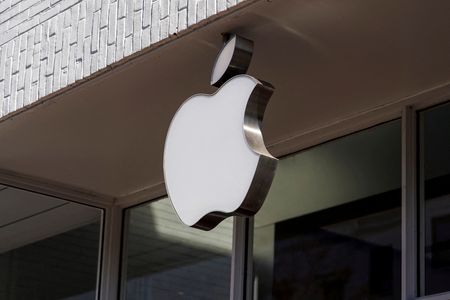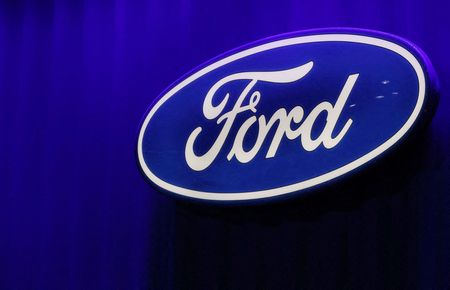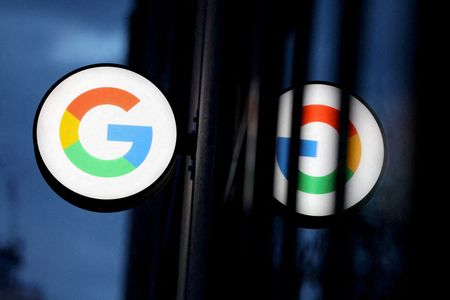 1
1 1
1





By Tim Hepher and Nick Carey
(Reuters) -From Canada Goose parkas and the latest iPhone to spare parts for aircraft engines and even some of the planes themselves – the list of goods, consumer and industrial, that will no longer be sold in Russia is growing longer with every day.
Some of the biggest Westerns brands, from Boeing and Exxon Mobil to Ford Motor Co, have suspended operations in Russia in an unprecedented wave of corporate action against Moscow following its invasion of Ukraine.
Winter clothing maker Canada Goose Holdings said on Wednesday it would suspend all wholesale and e-commerce sales to Russia, while Apple has said it has stopped sales of iPhones and other products.
Western nations have steadily ratcheted up sanctions on Russia since it invaded Ukraine last week, including against President Vladimir Putin and the central bank.
The measures have sent the rouble plunging and forced the central bank to jack up interest rates. They have also made it impossible for many companies do business in the country.
U.S. oil major Exxon said it would not invest in new developments in Russia and was taking steps to exit the Sakhalin-1 oil and gas venture, after similar moves to dump assets by Britain’s BP, Russia’s biggest foreign investor, and Shell Plc.
Ford joined other automakers by suspending operations in the country. Daimler Truck has frozen its activities in Russia, while Mercedes-Benz Group is looking into legal options to divest its 15% stake in Kamaz as quickly as possible.
General Motors said it would suspend all vehicleexports to Russia until further notice, and BMW also stopped shipments, adding it would halt production on the ground there.
NO LET-UP
Since the fall of Communism, Russia, and in particular the younger generation, has embraced global brands, foreign travel and social media. Its deepening economic isolation risks putting some of those changes into reverse, and cutting off an important market for international companies.
Signalling there would be no let-up from the West, U.S. President Joe Biden said in his State of the Union address on Tuesday that Putin “has no idea what’s coming” as he joined European states and Canada in closing U.S. airspace to Russian planes.
Within the aviation sector, Boeing has suspended maintenance and technical support for Russian airlines, while rival Airbus stopped spare part deliveries, hobbling the industry in Russia.
Lufthansa’s Technik unit and AerCap Holdings, the world’s biggest aircraft leasing company, have stopped their services for Russian customers.
The sporting world has also been affected, with German sportswear company Adidas suspending its partnership with the Russian Football Union.
On the sourcing side of the market, carmakers such as Volkswagen, BMW and Porsche are struggling to obtain crucial wire harnesses as suppliers in western Ukraine have been shuttered by the Russian invasion, forcing them to curtail production.
“Due to supply bottlenecks, interruptions to our production will occur,” BMW said in a statement. “We are in intensive discussions with our suppliers.”
Russian firms meanwhile have felt increasingly squeezed. Sberbank, Russia’s largest lender, said on Wednesday it was leaving the European market because its subsidiaries faced large cash outflows, adding that the safety of its employees and property was threatened.
Moscow, which has called Russia’s actions in Ukraine a “special operation”, has responded to the growing exodus of Western investors by temporarily restricting Russian asset sales by foreigners
CHORUS OF CONDEMNATION
Apple, which said it is making changes to its Maps app to protect civilians in Ukraine, joined a growing chorus of Western companies openly condemning Russian actions.
“We are deeply concerned about the Russian invasion of Ukraine and stand with all of the people who are suffering as a result of the violence,” Apple said.
“We deplore Russia’s military action that violates the territorial integrity of Ukraine and endangers its people,” Exxon said. Ford said in its condemnation: “The situation has compelled us to reassess our operations in Russia.”
The increasing focus of investors in environmental, social and governance (ESG) issues has added pressure on companies to act swiftly in ending ties with Russia and Russian entities.
Big U.S. technology companies said they were continuing efforts to stop Russia from taking advantage of their products.
Apple said it had blocked app downloads of some state-backed news services outside of Russia.
Google, owned by Alphabet Inc, said it had blocked mobile apps connected to Russian state-funded publisher RT from its news-related features, and barred RT and other Russian channels from receiving money for ads, mirroring a move made by Facebook.
Microsoft said it would remove RT’s mobile apps from its Windows App store and ban ads on Russian state-sponsored media.
(Reporting by Nick Carey, Christina Ammann, Tim Hepher, and Reuters bureaux; Writing by John Revill; Editing by Jan Harvey)